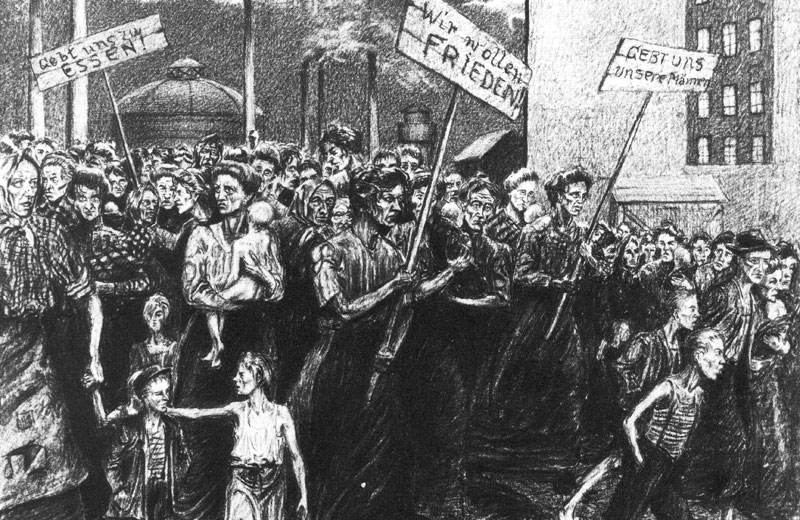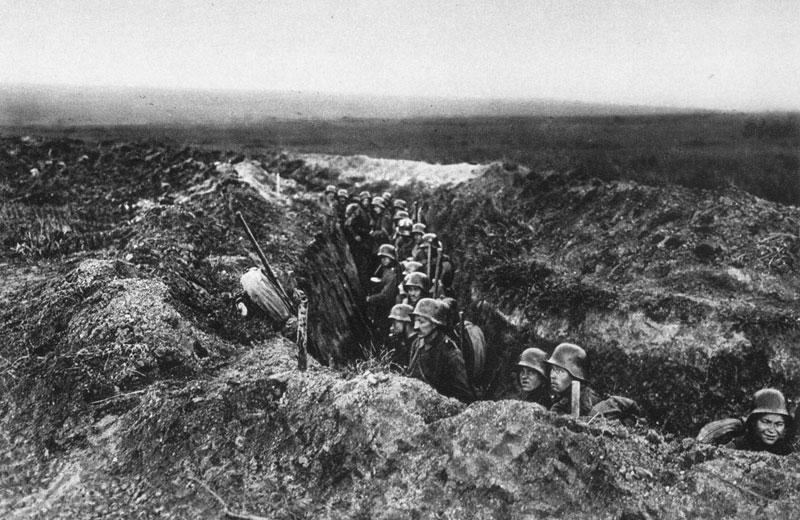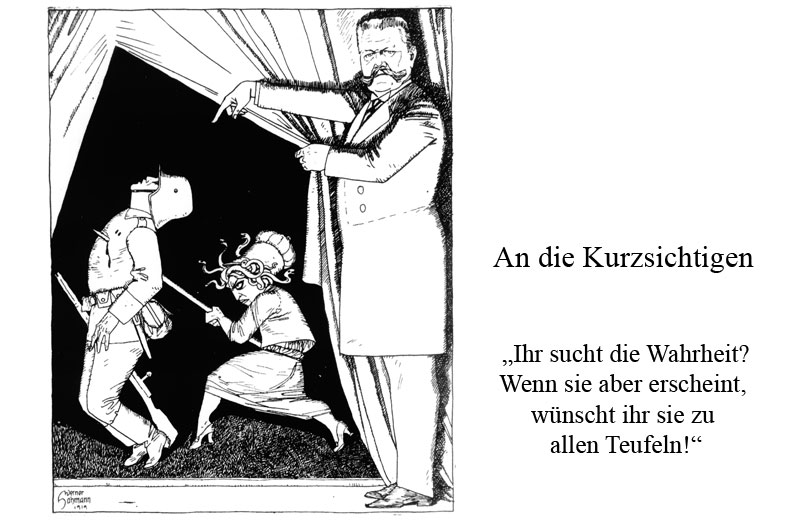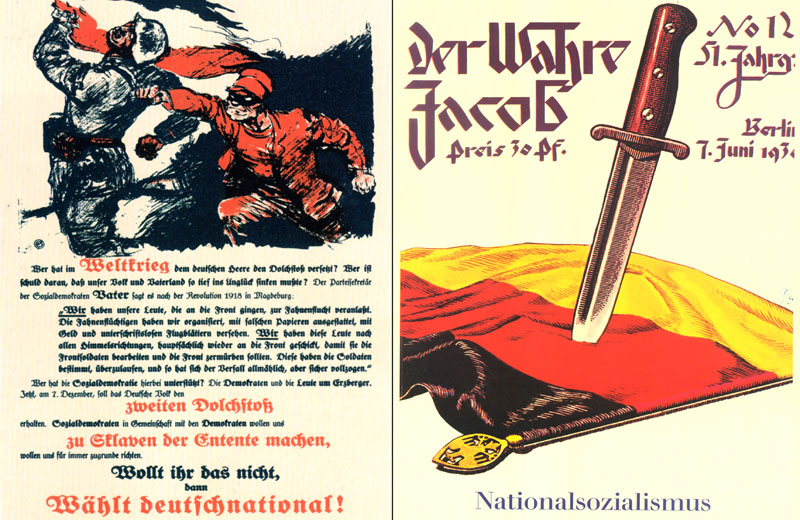“The ‘stab-in-the-back myth’ was in essence a political propaganda war over the question of blame. Who was to blame for losing the war? The military, the incorrect assessment of military power, especially in America? Or was it the damned politicians, the Social Democrats, with the Center and Democrats as followers who wanted democracy?”
Theodor Eschenburg (1904-1999) from a 1998 interview
In November 1918, news that sailors of the High Seas Fleet had begun to mutiny sparked a revolutionary spirit which, by November 9th, had leapt all throughout Germany. Everywhere workers’ and soldiers’ councils were established, and Friedrich Ebert became Chancellor. One day later, Wilhelm II fled into exile in the Netherlands. At last the way was clear for a ceasefire, which was signed on November 11th in the forest of Compiègne. Thus, the political collapse occurred before the signing of the military ceasefire. This fact was used by right-wing circles in the following years to argue that the supposedly undefeated army in World War I had been "stabbed in the back" by the Revolution, by Marxists, pacifists and Jews.
After the failed coup of 1923, Hitler used the stab-in-the-back myth and the dissatisfaction with the Treaty of Versailles to draw the masses to his side. He blamed the humiliating defeat of the Third Reich on the Democratic parties of the Weimar Republic and the “November criminals”. The removal of this Democracy was, in his words, the first requirement for the recovery of national greatness.
The stab-in-the-back myth remained part of his propaganda. Towards the end of World War II, it was the foundation of his rallying calls, with which he implored the populace, to never again – as alleged in 1918 – lay down their weapons shortly before certain victory.
Production: Anne Roerkohl dokumentARfilm GmbH




